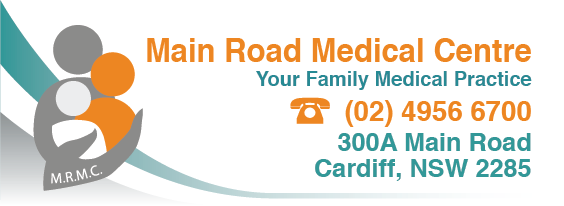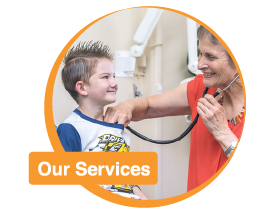Talking to the doctor about your child
One of my favourite aspects of being a doctor is watching my patients grow up to be healthy, strong adults. I’ve been in practice for 23 years now, and I have had that privilege. Perhaps because parents are learning the ropes, I see a lot of children between the ages of zero and five.
As they get older, the sorts of children’s health issues change. Children up to the age of five tend to get a lot of chest infections, colds, asthma, gastro infections and all sorts of ear infections. These would be the most common issues.
Colds and flu
Parents often bring school-aged children here because they’ve caught colds and flu from friends. Sometimes older siblings who are at school catch colds and flus and bring them home. Families are generous with sharing that sort of thing around! This is mostly harmless — the germs allow children to develop their immunity.
Behavioural issues
Many parents are concerned about behavioural issues. These are worth detecting and referring on as necessary. Growth and development can also cause concerns for some families.
Teenagers
Children’s health issues become more sensitive as kids become teenagers. When parents bring in their teenage children I like to ask whether the teenager is comfortable with the parent staying in the room. Once they start opening up, I will often ask whether they would like the parent to leave, and most parents are actually very good about that.
If they’ve come in with a parent then they are often more willing to trust me if the parent seems to be willing to place their trust in me—so it can work both ways. And, of course, I don’t discuss the issues with parents unless the teenager has given me permission to do so.
See also: asthma
Immunisations and children’s health
Immunisations are always a point of discussion. I think that all of the routine childhood immunisations are critically important to children’s health. It’s vital to increase herd immunity so that you’re less likely to infect others, particularly those with weakened immunity to infection. The diseases that we vaccinate children for have been killers in the past — and they can still be killers if children are exposed and they’re not immune to them.
I think the problem with society at the moment is that we haven’t seen these diseases. Vaccination programs have been so effective in improving children’s health that we haven’t seen many of these conditions for a long time. It is worth vaccinating to prevent them coming back.
The risks of vaccination are extremely small. There is certainly the possibility of a child becoming feverish or unwell for a day or two, but these are minor things. There is a very small percentage risk of more severe reactions. I guess I’ve been lucky, I’ve never seen one or heard of one, but it is there in the literature. The benefits of immunisation far outweigh the serious risks of illness.
We do have a couple of people who are conscientious objectors and I guess people have the right to do that. At the moment they’re not allowed into some schools and preschools unless their vaccines are up to date — these are some of the issues they can face. Read more about vaccinations.







